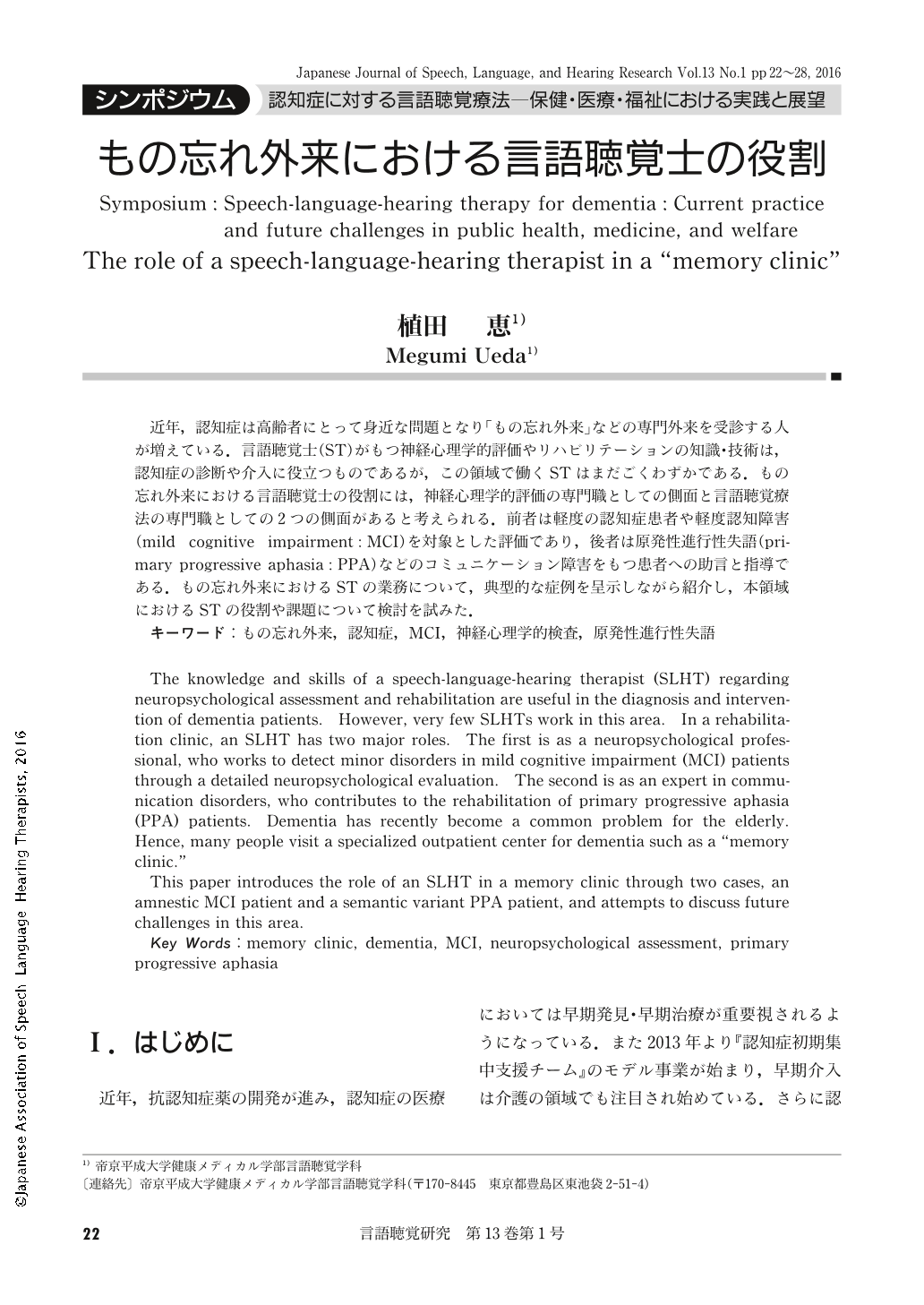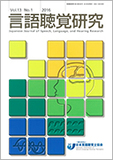Japanese
English
- 有料閲覧
- Abstract 文献概要
- 1ページ目 Look Inside
- 参考文献 Reference
近年,認知症は高齢者にとって身近な問題となり「もの忘れ外来」などの専門外来を受診する人が増えている.言語聴覚士(ST)がもつ神経心理学的評価やリハビリテーションの知識・技術は,認知症の診断や介入に役立つものであるが,この領域で働くSTはまだごくわずかである.もの忘れ外来における言語聴覚士の役割には,神経心理学的評価の専門職としての側面と言語聴覚療法の専門職としての2つの側面があると考えられる.前者は軽度の認知症患者や軽度認知障害(mild cognitive impairment:MCI)を対象とした評価であり,後者は原発性進行性失語(primary progressive aphasia:PPA)などのコミュニケーション障害をもつ患者への助言と指導である.もの忘れ外来におけるSTの業務について,典型的な症例を呈示しながら紹介し,本領域におけるSTの役割や課題について検討を試みた.
The knowledge and skills of a speech-language-hearing therapist (SLHT) regarding neuropsychological assessment and rehabilitation are useful in the diagnosis and intervention of dementia patients. However, very few SLHTs work in this area. In a rehabilitation clinic, an SLHT has two major roles. The first is as a neuropsychological professional, who works to detect minor disorders in mild cognitive impairment (MCI) patients through a detailed neuropsychological evaluation. The second is as an expert in communication disorders, who contributes to the rehabilitation of primary progressive aphasia (PPA) patients. Dementia has recently become a common problem for the elderly. Hence, many people visit a specialized outpatient center for dementia such as a "memory clinic."
This paper introduces the role of an SLHT in a memory clinic through two cases, an amnestic MCI patient and a semantic variant PPA patient, and attempts to discuss future challenges in this area.

Copyright © 2016, Japanese Association of Speech-Language-Hearing Therapists. All rights reserved.


